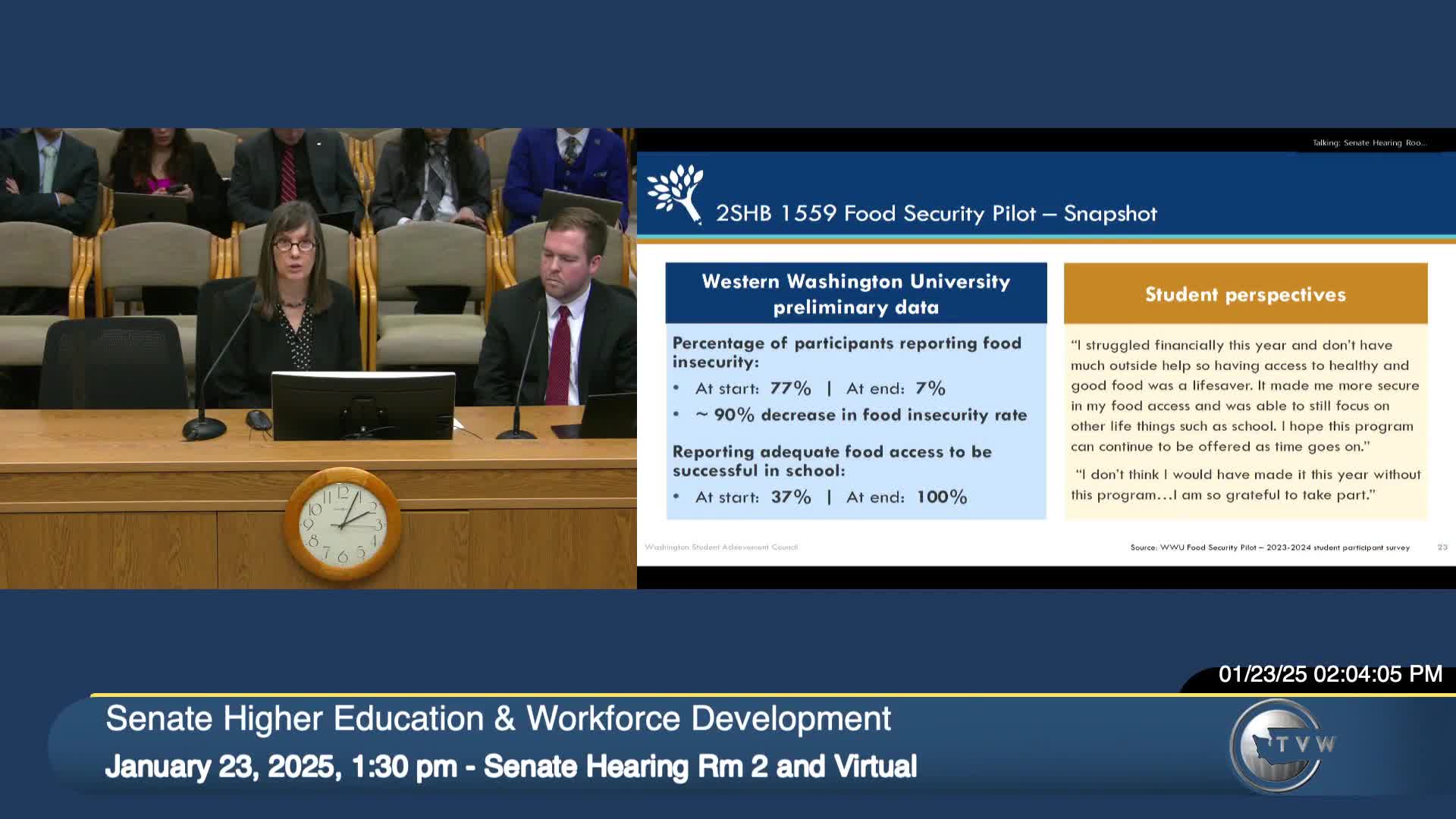Senate hearing: bill would make Passport to Careers an entitlement and raise award to $5,000; students and university staff urge passage
Get AI-powered insights, summaries, and transcripts
Subscribe
Summary
Senate Bill 5275 would modify funding and award levels for the Passport to Careers program, align eligibility with the Washington College Grant, and increase the award; students and university representatives testified in strong support.
The Senate Higher Education & Workforce Development Committee held a public hearing on Senate Bill 5275, which would modify funding and award levels for the Passport to Careers program, raise the annual award to $5,000 beginning in the 2025–26 academic year, and add program eligibility as an automatic pathway to qualify for the Washington College Grant.
Senator Tijuana Nobles, sponsor of SB 5275, told the committee the bill "increases funding to expand the program's terms and aligns eligibility with the Washington College Grant, entitling passport eligible students to this critical support." The bill would require the Legislature to appropriate funds based on estimated eligible participants, allow the scholarship to increase annually by the tuition growth factor (not to exceed the student's financial need), and direct the caseload forecast council to estimate anticipated program caseloads.
The nut graf: Multiple students who had received Passport funding and university representatives told the committee the program provides crucial flexible support for former foster youth and unaccompanied homeless youth and that restoring and expanding the award would improve retention and completion. Testimony included both personal accounts and institutional endorsements for shifting the program to an entitlement model.
Student testimony was strongly supportive. Mikhail Lemke (University of Washington graduate student and former Passport recipient) said the scholarship allowed him to graduate debt‑free and called the bill "an investment in our state's economy." Isabella (Isabella Bonilla, student lobbyist and Passport recipient) described arriving on campus without basic supplies and said Passport funding purchased her first computer and supported participation in internships. Remote and in‑person student testifiers from Western Washington University and the University of Washington described using Passport funds for housing, groceries, laptop replacements and other needs that enabled them to persist; one student said she now works two jobs after cuts to the program.
Institutional supporters included the Council of Faculty (University of Washington faculty legislative representative Jake Vigdor) and the College Success Foundation. Vigdor said faculty see the program's impact firsthand and urged codifying entitlement so students can "have support that they can count on." The College Success Foundation said its staff provide technical assistance to the Passport network and called the $5,000 target appropriate to match tuition increases.
The bill includes programmatic and fiscal elements: a scholarship amount set at $5,000 annually in 2025–26, indexed by tuition growth up to the student's financial need; entitlement status contingent on legislative appropriation; and a caseload forecast requirement to the Governor and fiscal committees. A fiscal note was requested but not available in time for the hearing.
Ending: Testimony closed with broad stakeholder support and students urging quick legislative action to restore and expand funding; no committee vote was recorded during the public hearing.
